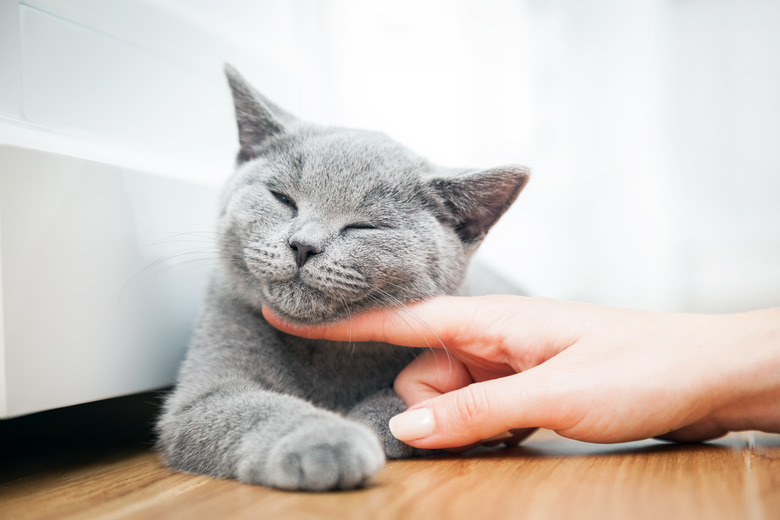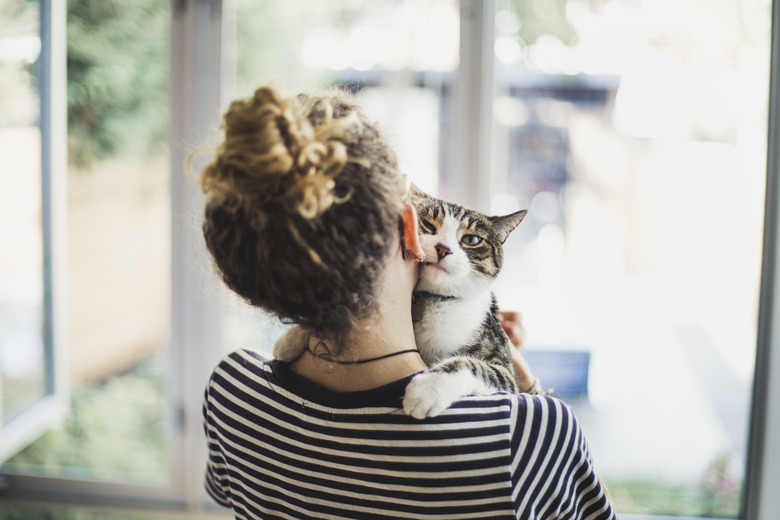Can My Cat Sense When Someone Has A Cat Allergy?
You have a group of friends over and it happens. As most of your friends eagerly hope to snuggle with your feline friend, you cat veers away. Like a moth to the flame, your cat immediately approaches that one friend who is allergic to cats. Why? Do they know they'll make your friend's eyes itchy?
It's doubtful your cat playing a vicious joke on your now-sneezing friend. But you'll need to stop your cat from trying to jump in their lap. Your cat likely can't sense a person has a cat allergy; he's just trying to be welcoming.
Cats don't sense allergies
Cats don't sense allergies
Do not be alarmed. As much as it might seem like your cat can somehow sense an allergy and is now torturing your poor friend, this is not the case. Your cat doesn't enjoy making allergic people ill. They don't even recognize that minor health difference in your friend, so a stuffy nose and watering eyes doesn't register to them.
Besides, in the cat world rubbing people's legs and jumping in laps isn't a cruel act. It's an act of welcome. Your cat is most likely interpreting your human friend acting polite like a cat would be polite, thus trying to welcome them.
Imitating a cat greeting
Imitating a cat greeting
How does your allergic friend backing away and desperately trying to disappear from your cat's line of vision get misconstrued as polite? Where many people might see a cat and eagerly lock eyes with it, hands extended ready to give an ear scratch, your allergic friends do the opposite.
In cat speak, this is the proper and polite way to greet someone, especially since prolonged eye contact is how cats show dominance. In addition, immediate touch can seem like an aggressive attack to your feline (which makes sense for humans too — hugs from strangers can be alarming).
Avoiding eye contact
Avoiding eye contact
Your allergic or cat-averse friend, on the other hand, will most likely avoid eye contact and will avoid touching your cat. In addition, your friend will instinctively be quieter and less forward toward your cat because they aren't trying to be friendly. Ironically, this will make your cat think that your human friend is respecting their cat boundaries. Your cat will feel safer with this person, and thus your cat will be more eager to meet your "tentative" friend.
Making a good impression
Making a good impression
When you want to make a good impression on a cat, the best thing to do at first is to ignore them and give them some space. Don't make prolonged eye contact unless the cat approaches you. If you want to allow the cat to get to know you, offer a knuckle instead of your whole hand.
This way the cat will decide whether it wants to sniff and rub its head on you. Then, in order to show the cat that you feel safe with them and they should feel safe with you, slowly blink at the cat. This informs the cat that you trust it enough to close your eyes around it, and it should trust you as well. If the cat blinks slowly back, you have just made a new kitty friend who trusts you!
If your guest who is allergic gives a lot of prolonged eye contact, is loud, or does other aversive acts, your cat will most likely leave them alone until they quiet down again. Then, because cats are very curious, there is a good chance that your cat will peep out and try to get to know this new guest in their house.
The truth, is cats love when people play hard to get — so it might be best to move the cat to another room if your kitty decides to get too cuddly with your cat-averse friends. Don't worry, there are plenty of other friends they can make who aren't allergic to them and still know how to be polite in cat terms.

